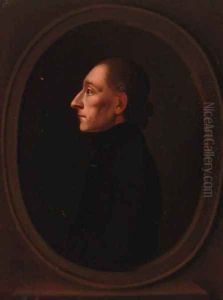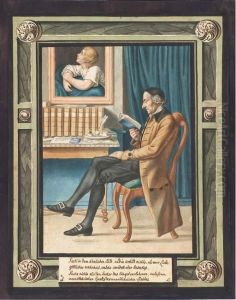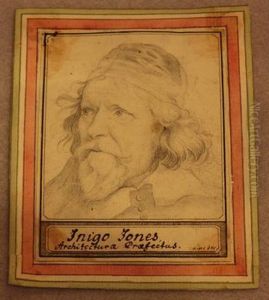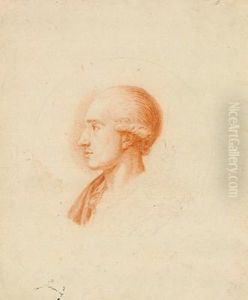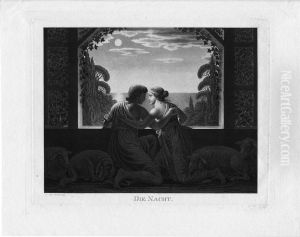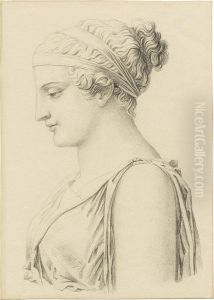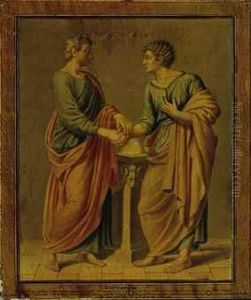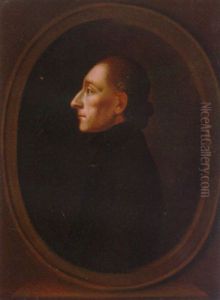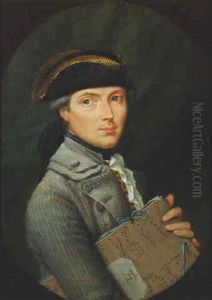Johann Heinrich Lips Paintings
Johann Heinrich Lips was a Swiss artist known primarily for his work as an engraver during the late 18th and early 19th centuries. Born on April 29, 1758, in Zurich, Switzerland, Lips developed an interest in art at a young age. He initially trained under Johann Caspar Füssli, a painter and art writer who was also the father of the famous Swiss painter Henry Fuseli. This early education set the foundation for Lips' artistic career, as he quickly developed a skill set that would lead him to become one of the most sought-after engravers of his time.
After his initial training, Lips sought to broaden his artistic horizons and techniques. He traveled to Paris, a hub for artists seeking to refine their craft and gain exposure to the burgeoning art scene of the late 18th century. In Paris, Lips continued his studies and began to establish himself as a talented engraver. His work caught the attention of many notable figures of his time, including Johann Wolfgang von Goethe, with whom he developed a significant professional relationship. Lips engraved several illustrations for Goethe's works, which helped to cement his reputation as a master engraver.
Throughout his career, Lips was known for his detailed and expressive engravings. He had the ability to capture the essence of his subjects with remarkable clarity and depth, a skill that made his work highly coveted. In addition to his work for Goethe, Lips produced a wide range of engravings, including portraits, landscapes, and illustrations for books. His engravings were not only celebrated for their artistic quality but also for their contribution to the dissemination of knowledge and ideas during the period.
Lips' contributions to the field of engraving were recognized by his appointment as a professor at the University of Leipzig, where he taught for several years. This position allowed him to influence a new generation of artists and engravers, ensuring that his techniques and artistic vision would continue to inspire future artists.
Johann Heinrich Lips died on March 3, 1817, in Leipzig, Germany. His legacy as a master engraver and influential artist endures, with his works remaining highly prized by collectors and historians. Lips' ability to blend technical precision with artistic expression helped to advance the art of engraving, making him a pivotal figure in the history of European art.
